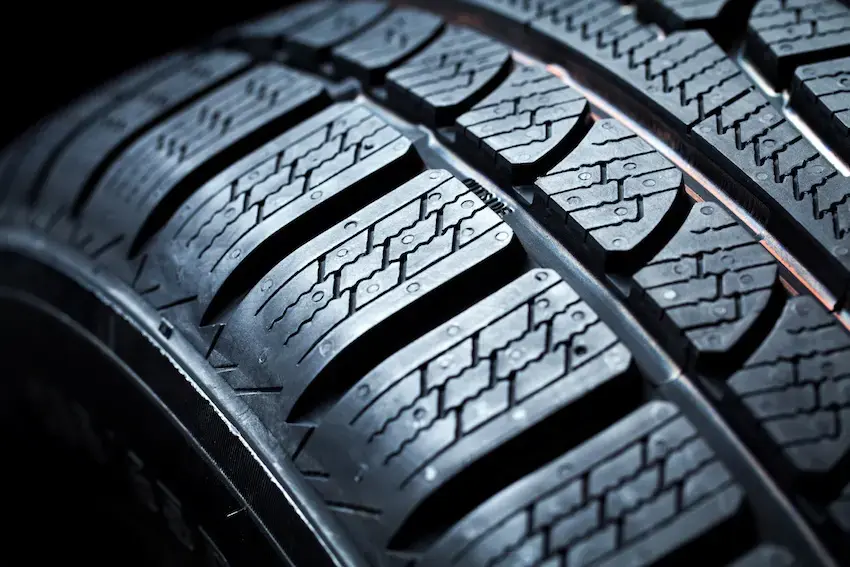Extreme conditions prevail in tire production – heat, pressure, steam. Accurate pressure measurement technology is essential to ensure reliable vulcanization and prevent failures.
Over one billion tires are produced worldwide each year – making the industry one of the largest consumers of natural rubber. To give this natural material shape and durability, high pressures and temperatures are necessary. This requires robust, reliable measurement technology.
Tire manufacturing: from raw material to blank
The composition of the raw material varies depending on the manufacturer and tire type. Up to 40 different ingredients are used – including natural rubber, carbon black, sulfur, and various plasticizers. These are vigorously mixed at high temperatures and then calendered into strips.
From these strips, the individual layers of the tire are formed. These include:
- Steel fabric coated with rubber (belts)
- Carcass and sidewalls
- Tread, inner liner, and bead area
The components are assembled on a tire building machine – the result is called a blank or 'green tire'.
Vulcanization: the critical moment
The blank is then placed into a so-called vulcanization press. Under high pressure and at temperatures up to 180 °C, the actual linking of the materials occurs – vulcanization.
This involves inflating a rubber bladder inside the blank with compressed air or steam. The pressure (often over 24 bar) presses the material against the mold – shaping the profile. This phase is highly sensitive: temperature and pressure must be precisely controlled.
Why pressure sensors are indispensable here
Monitoring the bladder pressure during vulcanization is carried out at many renowned tire manufacturers using pressure transmitters from the ATM series by STS. These sensors deliver accurate readings even under demanding conditions:
- ATM.1ST: Highly precise transmitter with extensive temperature compensation and excellent long-term stability
Thanks to their durable design, high test and burst pressure values, and easy on-site calibration, they are particularly suitable for continuous use in vulcanization environments with steam, heat, and pressure spikes.
Conclusion
In modern tire manufacturing, the quality of pressure measurement technology determines production safety and efficiency. STS pressure sensors of the ATM series provide reliable data under extreme conditions – for safe processes, high product quality, and minimized downtime.
